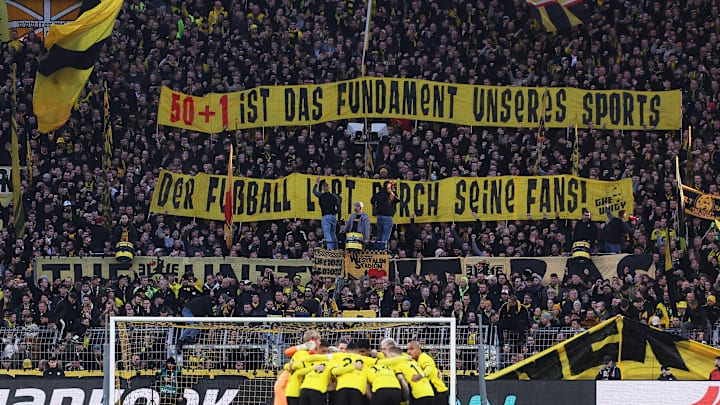Recently, the Bundesliga has been in the middle of a controversy where it decided to dismiss its partnership with CVC, a Luxembourg-based investment fund, following mounting outrage from fans. This deal, estimated to be worth 1.1 billion euros, would have implied that the league would cede 8% of its future television rights in exchange for funding support.
But protests from fan communities all over Germany led to the end of the deal and that case was a great win for the amateur football movement as an example of fan groups’ power to set the direction football goes.
BREAKING
— DW Sports (@dw_sports) February 21, 2024
BIG W for German football fans!
All the protests, the tennis balls throwing, delaying the matches, remote control cars, seem to have worked as the planned investor deal in the DFL has fallen through.
Hans-Joachim Watzke, spokesman for the DFL Executive Committee… pic.twitter.com/HCIzydchUr
The “50 + 1” rule, which originated in German football, makes club ownership dependent on nonprofit associations, having fans empowered in the decision-making process. As a result, the fans’ influence remains unchallenged. A large number of football fans were afraid the cooperation with CVC would endanger the principal and would make more room for corporate power in German football.
The decision that the CVC deal was dropped was given by Hans-Joachim Watzke, the spokesperson of the executive board of DFL (Deutscher Fußball- und Sportsbetrieb). In his statement, Watzke mentioned the matter of preserving only the competition’s integrity and the league’s viability, which was marred by the ongoing protests.
""In view of the current developments, a successful continuation of the process no longer seems possible.""Hans-Joachim Watzke
The act of taking down the contract symbolizes the victory on the side of fan activism and shows the power of the supporters in designing the future of football. Protests by soccer fans ranging from banners and chants to interruptions of matches brought the issue onto the agenda of league officials compelling them to review their stand.
Thomas Kessen, spokesperson for the supporters’ association “Our Curve,” was pleased with the result, saying:
"“It’s a good day for German football fans.”"
With the Bundesliga moving forward, the issue of balancing fans’ interests versus financial stability and growth will need to be addressed. While foreign investment could end up delivering resources the clubs and the league would need, they should be treated alongside preserving the unique character and way of life of the Bundesliga.
Achieving this equilibrium will be a result of constant interactions and collaboration between league executives, teams, and fans which will make the Bundesliga an example of what its roots were in the past and of the opportunities in today’s football environment.
